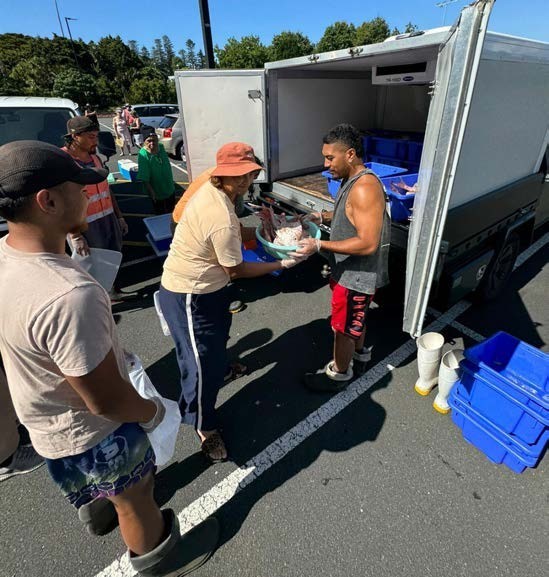THE CONSEQUENCES OF A DEPLETED FISHERY IN A COST-OF-LIVING CRISIS
If you enjoy tossing a line out and sharing kaimoana, you may be starting to feel the pinch of increasing costs. What should have been a summer out on the water reeling in fish is becoming less of a reality and more of a vague memory.
With fewer fish in our oceans and a cost-of-living crisis, many fishers are finding their favourite pastime a distressing combination.
Concern arises as rising fuel, bait, and general living costs mean fewer recreational fishers are taking their boats out. And those who do are catching less fish because of the perilous state of our fisheries.
The Kai Ika Project is one particular project that is taking a significant hit during these tough times. Co-founded by LegaSea and its partners, it is struggling to cover the costs of distributing high-quality, previously unappreciated kaimoana to families in Auckland and Wellington every week.
Despite working multiple jobs, more and more families are struggling to put healthy, proteinrich food on the table. Community demand for this kaimoana is higher than ever before.
Since 2016, The Kai Ika Project has prevented over 400,000 kilos of fish heads and frames from entering our landfills, and instead filled the bellies of Kiwi families.
Twice a week, hundreds of people line the carpark of Papatūānuku Kōkiri Marae, hoping to feed their families. But lately, many have been turned away as there hasn’t been enough fish to go around.
One of the main funding streams has been through the Kai Ika Westhaven filleting service. Recreational fishermen pay a small fee for their fish to be filleted and this helps cover the distribution costs. Better still, remaining fish offcuts are also distributed to local communities.
However, it is quickly becoming a perfect storm. It’s not only the scarcity of fish, but people also can’t afford to put fuel in the boat and are not bothering to go fishing. Therefore, the income that is relied upon to cover the overarching expenses that come with distributing fish heads and frames, including petrol and wages, is no longer available.
The poor management of our fisheries is not only an environmental issue, it’s one that is having tangible social consequences. If our new Government wants to make a positive difference, it needs to prioritise the interests of everyday New Zealanders and restore abundance back into our oceans. It’s not a big ask.

Community demand for Kai Ika fish heads and frames is higher than ever before.
Photo: Joshua Inger.
It’s important that Kiwis can continue to catch fish to support and feed their whānau, especially when the cost of quality food keeps going up.
If you are interested in learning more about The Kai Ika Project or ways you can contribute, please visit kaiika.co.nz